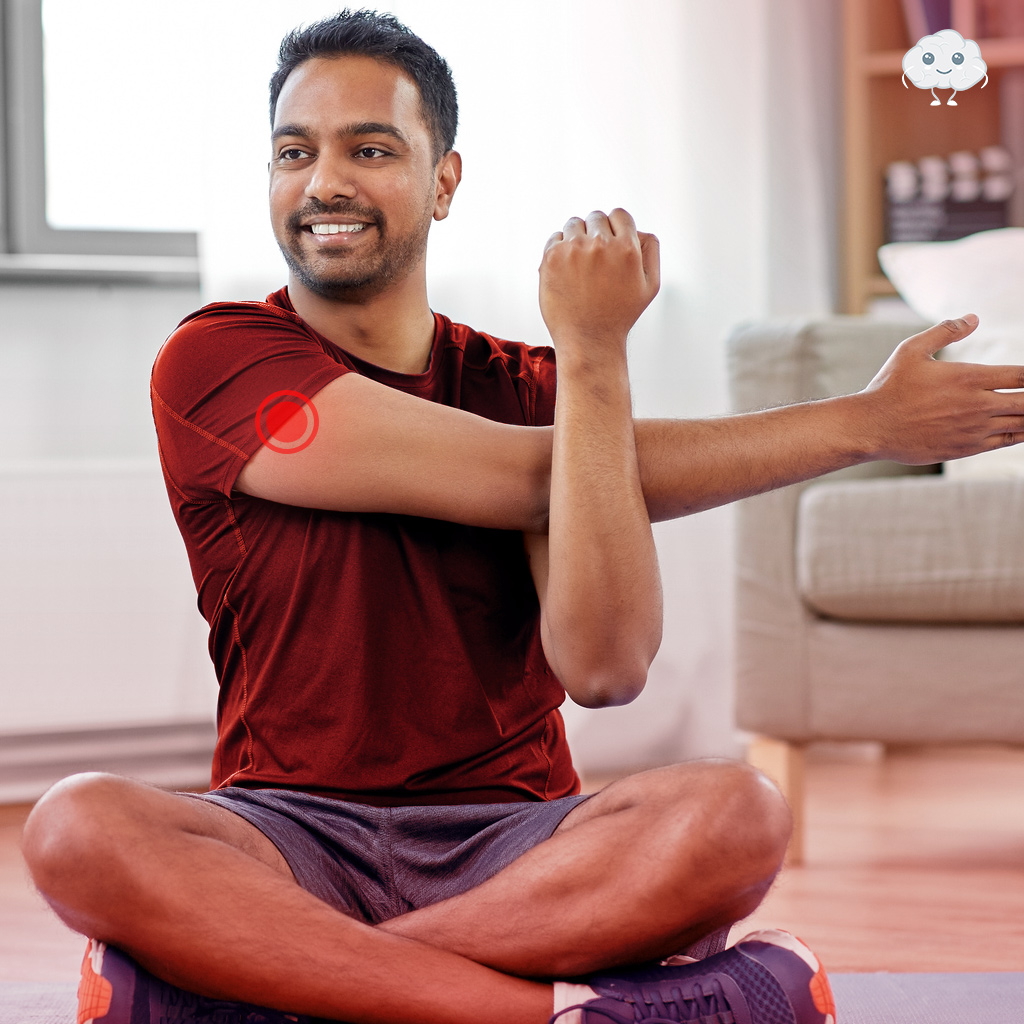Marina, a 38-year-old executive, felt like she was constantly racing against the clock. Between endless meetings, tight deadlines, and the struggle to find work-life balance, she found herself trapped in a never-ending cycle of stress and anxiety. Until one day, exhausted and on the verge of a breakdown, she discovered the power of mindfulness and meditation for anxiety.
Stress and Anxiety in Today’s Society
Sarah’s scenario is not uncommon. According to recent research:
- 83% of US workers suffer from work-related stress [1]
- Nearly half of all American workers say work-related stress is affecting their personal relationships [1]
- 76% of UK workers have experienced stress and burnout in the past year[2]
- 79% of British adults commonly experience work-related stress [3]
These alarming numbers reveal a silent epidemic of stress and anxiety affecting millions, highlighting the urgent need for effective stress management techniques.
What is Mindfulness?
Mindfulness is a practice that involves bringing attention to the present moment without judgment. Inspired by traditional meditation, this technique has gained popularity in recent years due to its proven effectiveness in reducing stress and anxiety [4].
Benefits of Mindfulness for Stress Management
Scientific studies have demonstrated the multiple benefits of mindfulness:
Significant Stress Reduction: A meta-analysis showed that Mindfulness-Based Stress Reduction (MBSR) is effective in reducing stress in healthy individuals [5].
Improved Mental Health: Research indicates important effects in reducing anxiety, depression, and distress, as well as improving quality of life [6].
Increased Awareness and Compassion: Regular mindfulness practice can increase empathy and self-compassion, crucial factors in dealing with daily stress [7].
Positive Brain Changes: Neuroscience studies report that mindfulness practice can lead to changes in brain areas associated with attention and emotional regulation [8].
Long-lasting Effects: The benefits of mindfulness can persist even after the training program ends [9].
How to Practice Mindfulness: Techniques and Meditation for Anxiety
- Conscious Breathing: Focus your attention on your breath for a few minutes.
- Body Scan: Mentally scan your body, observing sensations.
- Guided Meditation: Practice full attention while sitting comfortably for 5-10 minutes.
- Mindfulness in Daily Activities: Bring full awareness to activities such as eating or walking.
Guided mindfulness meditation for anxiety is an excellent way to start, especially for beginners.
WeMind: Your Mindfulness Companion
WeMind is a meditation app designed to seamlessly integrate into your daily routine. With guided mindfulness meditations, breathing exercises, musical therapy, and cognitive techniques, WeMind offers a personalized approach to mindfulness practice and stress reduction.
Conclusion: Your Path to a Less Stressed Life
Mindfulness is not just a passing trend, but a powerful evidence-based tool for managing stress and anxiety. Just like Sarah, who found refuge in mindfulness amidst chaos, you too can transform your relationship with stress and anxiety.

References:
1. American Psychological Association. (2021). 2021 Work and Well-being Survey. https://www.apa.org/pubs/reports/work-well-being/2021-survey
2. Westfield Health. (2022). Coping after Covid: The mental health impact of the pandemic on workers in the UK. https://www.westfieldhealth.com/blog/coping-after-covid-survey-results
3. Mental Health Foundation. (2018). Stress: Are we coping? https://www.mentalhealth.org.uk/publications/stress-are-we-coping
4. Creswell, J. D. (2017). Mindfulness interventions. Annual Review of Psychology, 68, 491-516. https://doi.org/10.1146/annurev-psych-042716-051139
5. Khoury, B., Sharma, M., Rush, S. E., & Fournier, C. (2015). Mindfulness-based stress reduction for healthy individuals: A meta-analysis. Journal of Psychosomatic Research, 78(6), 519-528. https://doi.org/10.1016/j.jpsychores.2015.03.009
6. Goyal, M., Singh, S., Sibinga, E. M., Gould, N. F., Rowland-Seymour, A., Sharma, R., … & Haythornthwaite, J. A. (2014). Meditation programs for psychological stress and well-being: a systematic review and meta-analysis. JAMA Internal Medicine, 174(3), 357-368. https://doi.org/10.1001/jamainternmed.2013.13018
7. Chiesa, A., & Serretti, A. (2009). Mindfulness-based stress reduction for stress management in healthy people: A review and meta-analysis. The Journal of Alternative and Complementary Medicine, 15(5), 593-600. https://doi.org/10.1089/acm.2008.0495
8. Tang, Y. Y., Hölzel, B. K., & Posner, M. I. (2015). The neuroscience of mindfulness meditation. Nature Reviews Neuroscience, 16(4), 213-225. https://doi.org/10.1038/nrn39169. Astin, J. A. (1997). Stress reduction through mindfulness meditation. Psychotherapy and Psychosomatics, 66(2), 97-106. https://doi.org/10.1159/000289116





